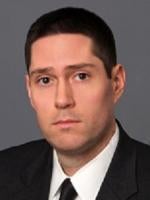On Monday, the United States Supreme Court issued a decision upholding the broad prohibition against autodialed calls to cells phones under the Telephone Consumer Protection Act (TCPA) but ruling that a 2015 exception, which had allowed autodialed calls for the purposes of collecting federally-backed debts such as student loans and mortgage debts, violated the First Amendment. Thus, the Court held that the exception is invalid and must be severed from the statute. Under Section 227(b)(1)(A)(iii) of the TCPA, it is unlawful to “make any call (other than a call made for emergency purposes or made with the prior express consent of the called party) using any automatic telephone dialing system or an artificial or prerecorded voice” to a cell phone. See 47 U.S.C. § 227(b)(1)(A)(iii). In 2015, Congress passed an exception that permitted autodialed calls “made solely to collect a debt owed to or guaranteed by the United States.” Id. A number of political and nonprofit organizations, seeking to make autodialed calls to cell phones for political purposes, filed suit seeking to invalidate Section 227(b)(1)(A)(iii) in its entirety on the basis that the 2015 exception impermissibly favored government debt-collection speech over political and other speech in violation of the First Amendment of the Constitution. The plaintiffs reasoned that the 2015 exception “undermine[d] the credibility” of the government’s interest in consumer privacy and that if Congress no longer had a genuine interest in consumer privacy, then the underlying 1991 robocall restriction is no longer justified and is thus unconstitutional.
A six-member majority of the Court agreed that the government-debt exception violated the First Amendment. See Slip Op. at 2, 9. The Court, however, was not willing to invalidate Section 227(b)(1)(A)(iii) in its entirety based solely on the unconstitutional nature of the government-debt exception. Rather, applying traditional principles of severability, a seven-member majority of the Court ruled that the exception must be severed from the remainder of the TCPA, finding that the exception “is only a slice of the overall robocall landscape.” Id. at 10, 20. Established defenses against TCPA litigation continue to exist, including establishing that a consumer had provided the requisite level of consent to receive a call was provided or that calls were not made using an “automatic telephone dialing system.”






 />i
/>i
